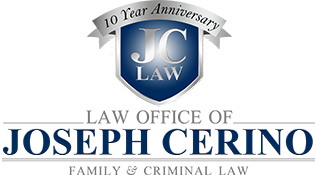Most people become slightly alarmed when they see flashing lights behind them while driving. Many people who do get pulled over aren’t sure what to do or how to interact with the police. Knowing how to handle the situation is key to minimizing your inconvenience and avoiding unnecessary hassles.
The police can pull you over for a variety of reasons, but their intent is not always as it first appears. They can say you were speeding, failed to fully stop at a sign or traffic light, crossed over the yellow center line, or even that your license plate light is out. Generally, they will be using these reasons to determine if you may be impaired by alcohol or drugs.
Attorney Joseph Cerino advises that driving under the influence – even if you feel you’re fine to drive because you’ve only had a few glasses of wine – is never a good idea. Mr. Cerino has been helping people in Southwest Florida protect their rights in the event of being charged with a criminal offense, and getting pulled over by the police is often how it all begins.
“If you do end up getting pulled over, there are certain things you can do to minimize the experience without giving up any of your rights,” Cerino says.
What To Do – and NOT Do – If You Get Pulled Over
The first thing to do is determine a safe place to pull out of the traffic lanes and come to a full stop without impeding traffic. What you do next is critical to how the rest of the traffic stop will proceed.
There are a lot of videos on the internet now showing people refusing the directives of a police officer during a traffic stop from all around the country. Drivers are shown refusing to answer any questions from the police, not rolling their windows down more than a few inches, and other behavior that can result in a dramatic escalation of events.
In Florida, the law states that you must provide the officer with your name and address, and hand him your driver’s license, insurance information, and vehicle registration if requested. You are not legally required to answer any other questions. That does not mean you can’t provide police with any additional answers, only that you are not required to by law. Attorney Cerino advises that it is best to not answer any further questions without consulting with your attorney first.
If for some reason you feel the need to record your interaction with the officer or officers, that is also within your rights in Florida. However, you should be aware that doing this may cause the officer to become more assertive in how they treat you.
Another good practice is to always carry your car’s registration and insurance card in an easy-to-reach place in your car to avoid delay while you’re searching for it. Never make any sudden or unexpected movements inside or outside your vehicle, and always let the officer know you’re reaching a specific place in your car to retrieve what you were asked for.
If you’re asked to perform any type of field sobriety test or agree to take a breathalyzer test to check your blood alcohol content, (BAC), you may also politely decline. But you need to know that your refusal will result in an automatic suspension of your driver’s license for a period of 1 year.
Never become argumentative or aggressive with the police, as this will likely make things worse.
The Law Office of Joseph Cerino is prepared to fight to protect your full legal rights if you are charged with a crime and is also available for a free consultation 24 hours a day, 7 days a week if you need help. Visit the Law Office of Joseph Cerino or call (239) 561-2820 for assistance today.

